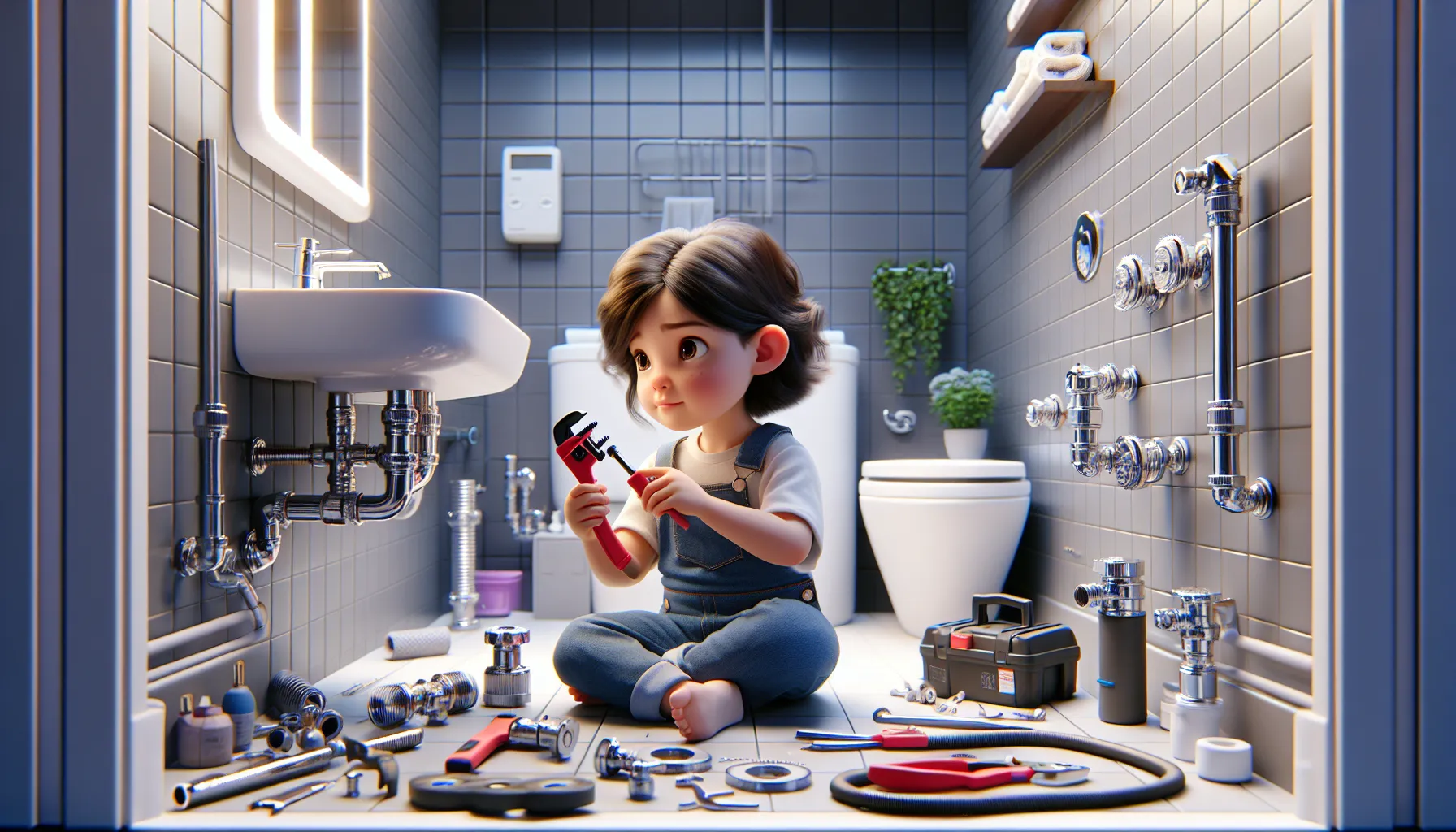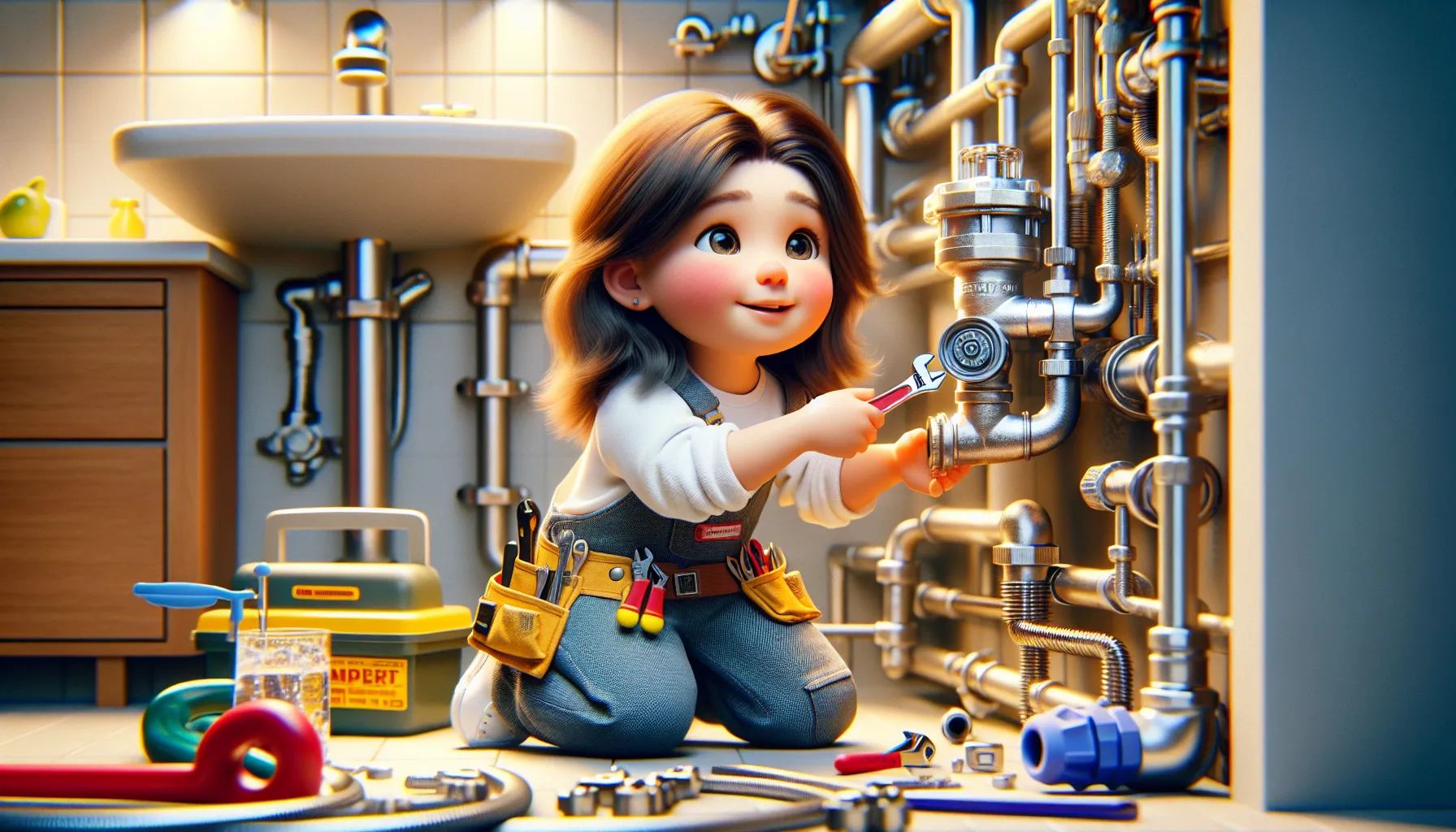Many households rely on water heaters for daily activities such as bathing, cooking, and cleaning. Making the right choice when it comes to selecting a water heater is crucial for the comfort and functionality of your home. With a plethora of options available in the market, it is important to consider various factors to ensure you choose the best water heater for your specific needs.
Key Takeaways:
- Consider Fuel Source: Evaluate the fuel sources available in your area such as electricity, gas, or solar to choose the most cost-effective option for your water heater.
- Size Matters: Determine the size of the water heater based on the number of people in your household and your hot water usage to ensure sufficient supply.
- Energy Efficiency: Look for energy-efficient models with a high Energy Factor (EF) to reduce utility bills and environmental impact.
- Warranty and Maintenance: Check the warranty coverage and requirements for maintenance to prolong the lifespan and efficiency of your water heater.
- Professional Installation: Hire a reputable plumber or technician for proper installation to ensure safety, efficiency, and compliance with building codes.
Understanding Water Heater Types
You need to understand the different types of water heaters available to make an informed decision for your home. There are several options to consider, each with its own advantages and disadvantages. Conventional storage water heaters, tankless water heaters (on-demand), heat pump water heaters (hybrid), solar water heaters, and condensing water heaters are the most common types you’ll encounter. After comparing these options, you can select the one that best suits your household’s needs.
Conventional Storage Water Heaters
Water conventional storage water heaters are the most common type found in homes. They store a large volume of water in a tank and keep it heated to the desired temperature. When hot water is used, the tank refills and reheats the water. These heaters are relatively affordable but can be less energy-efficient than other types.
Tankless Water Heaters (On-Demand)
Pros of tankless water heaters include their energy efficiency and ability to provide hot water on demand. These units heat water directly without the use of a tank, which can result in lower energy costs and a continuous supply of hot water. However, they may have a higher upfront cost compared to conventional storage water heaters.
Heater tankless water heaters are compact and can be installed closer to the point of use, reducing heat loss in the delivery process.
Heat Pump Water Heaters (Hybrid)
Heaters heat pump water heaters work by transferring heat from the air or ground to heat water. They are highly efficient, making them a cost-effective option for many homeowners. However, they may not be suitable for colder climates where the ambient air temperature is consistently low.
Understanding heat pump water heaters require proper installation and maintenance to ensure optimal performance and energy savings.
Solar Water Heaters
Types solar water heaters utilize the sun’s energy to heat water for residential use. They are environmentally friendly and can lead to significant energy savings over time. However, they may require a backup system for cloudy days or periods of high demand.
Water solar water heaters can be a valuable investment for homeowners looking to reduce their carbon footprint and energy bills.
Condensing Water Heaters
Water condensing water heaters are highly efficient units that extract heat from exhaust gases to heat water. They are particularly beneficial for larger households with high hot water demand. However, they may have higher upfront costs and require proper venting to operate safely.
Pros condensing water heaters offer increased efficiency and lower operating costs, making them a practical choice for households looking to save on energy expenses.
Factors to Consider When Choosing a Water Heater
Keep the following key factors in mind when selecting the right water heater for your home:
- Size and Capacity Needs: To determine the appropriate size and capacity of the water heater you need, consider the number of people in your household and their water usage habits. A larger family with high hot water demand will require a water heater with a higher gallon capacity. Conversely, a smaller household may be adequately served by a smaller unit.
Size and Capacity Needs
To ensure you have enough hot water for your household’s needs, it’s crucial to consider the size and capacity of the water heater. The number of bathrooms in your home, frequency of hot water usage, and the flow rate of fixtures should all be taken into account when determining the appropriate size of the water heater.
Energy Efficiency
Capacity
This important factor refers to how efficiently a water heater uses energy to heat water. A more energy-efficient unit will not only save you money on your utility bills but also have a lower impact on the environment due to reduced energy consumption. Look for water heaters with a high Energy Factor (EF) rating for optimal efficiency.
Fuel Type Availability
Even
Water
Cost and Budget
With
Needs
Environmental Impact and Sustainability
Capacity
Fuel
Space Requirements and Installation Constraints
Choosing
Energy
Tips for Selecting an Efficient Water Heater
To ensure you choose the most efficient water heater for your home, there are several key factors to consider. From understanding energy ratings to considering future energy costs, these tips will guide you in making the best decision for your household’s hot water needs.
Understanding Energy Ratings
To start off, it’s crucial to familiarize yourself with the energy ratings of different water heaters. The Energy Factor (EF) is a measurement of a water heater’s overall efficiency, indicating how much of the energy input is effectively converted into hot water. Look for water heaters with a high EF rating, as they will be more cost-effective in the long run and help you save on energy bills.
Assume that a water heater with a higher EF rating will be more expensive upfront but will pay off through lower energy costs over time. It’s worth investing in a more efficient model to enjoy savings in the future.
Considering Future Energy Costs
When dicking out a water heater, it’s important to not only consider the upfront cost but also future energy costs. Opt for a water heater that may have a higher initial price tag but offers greater energy efficiency. This will lead to significant savings on your monthly energy bills in the long term.
Energy-efficient water heaters may qualify for rebates or tax incentives, further reducing the overall cost of the unit. By investing in a more efficient model now, you can enjoy savings and lower energy consumption for years to come.
Selecting Appropriate Features and Technology
When choosing a water heater, it’s vital to select one with appropriate features and technology that align with your household’s hot water needs. Consider features like programmable settings, leak detection, and energy-saving modes to maximize efficiency and convenience.
Selecting a water heater with advanced technologies such as heat pump systems or smart controls can further enhance energy efficiency and performance. By investing in a water heater with the right features, you can optimize its operation and enjoy hot water whenever you need it.
Step-by-Step Guide to Choosing Your Water Heater
After assessing your hot water needs and researching different types of water heaters, the next step in choosing the right water heater for your home involves calculating operating costs, exploring rebates and incentives, and making the final decision. This step-by-step guide will help you navigate through these important considerations to ensure you select the best water heater to meet your household’s needs.
Assessing Hot Water Usage and Demand
Guide: Before choosing a water heater, it’s crucial to assess your household’s hot water usage and demand. Consider the number of people in your home, the number of bathrooms, and the size of your household appliances that require hot water. This will help you determine the appropriate size and type of water heater for your household needs.
Researching and Comparing Types
Guide: When researching and comparing different types of water heaters, consider factors like energy efficiency, fuel type, and maintenance requirements. Compare traditional tank water heaters, tankless water heaters, and heat pump water heaters to determine which type aligns best with your household’s requirements.
- Energy Efficiency: Compare the energy efficiency ratings of different water heater models to choose one that will help reduce your utility bills over time.
- Fuel Type: Consider whether a gas, electric, or hybrid water heater is the most suitable for your home based on fuel availability and cost.
- Maintenance Requirements: Research the maintenance needs of each type of water heater to ensure you can upkeep your unit properly for optimal performance.
- Durability: Look into the expected lifespan of various water heater models to gauge long-term reliability and performance.
- Cost: Compare the initial purchase price and installation costs of different water heaters to find one that fits within your budget.
Recognizing the key differences between water heater types will help you make an informed decision based on your household’s specific requirements and constraints.
Choosing Calculating Operating Costs
While choosing a water heater based on upfront costs is imperative, calculating the operating costs over the unit’s lifespan is equally important. High-efficiency models may have higher initial investment costs but can lead to significant savings on energy bills in the long run. Consider the energy efficiency ratings and annual operating costs when selecting a water heater to ensure cost-effectiveness over time.
Plus, opting for a water heater with a higher Energy Factor (EF) can result in lower energy consumption, reducing your monthly utility expenses and environmental impact.
Exploring Rebates and Incentives
Assessing rebates and incentives offered by manufacturers, government entities, and utility companies can help offset the initial cost of purchasing and installing a water heater. Research available rebates and tax credits for energy-efficient water heaters in your area to maximize savings and benefits.
Heater Making the Final Decision
Decision: When making the final decision on which water heater to purchase, consider all the factors discussed in this guide, including your household’s hot water needs, energy efficiency requirements, operating costs, available rebates, and overall budget constraints. By weighing these considerations carefully, you can confidently select the right water heater that best suits your household’s requirements and preferences.
Installation Considerations and Best Practices
Professional vs. Do-It-Yourself Installation
Practices for water heater installation depend on your comfort level and expertise. While some homeowners may opt for a do-it-yourself approach to save on installation costs, it’s important to note that water heater installation can be complex and should be handled by a licensed professional. Hiring a professional ensures that the installation is done correctly and up to code, reducing the risk of leaks, malfunctions, or safety hazards.
Preparing for Installation
Clearly, preparation is key when it comes to installing a new water heater. Before the installation day, make sure to clear the path to the water heater location, remove any obstacles that may hinder access, and have the necessary tools and materials ready. Additionally, consider draining your existing water heater to make the removal process smoother and quicker.
This brings us to the next crucial step in the installation process.
Safety and Permit Considerations
Do-It-Yourself installations may seem cost-effective, but they come with potential risks. Safety should always be a top priority when installing a water heater. Improper installation can lead to gas leaks, electrical malfunctions, and even fire hazards. It’s important to follow manufacturer instructions carefully, use the right tools, and ensure all connections are secure to prevent any accidents.
Maintenance Tips to Extend Water Heater Life
Best practices for maintaining your water heater can significantly extend its lifespan and efficiency. Regular maintenance includes flushing the tank to remove sediment buildup, checking for leaks or corrosion, and inspecting the pressure relief valve. Any signs of wear or damage should be addressed promptly to avoid costly repairs or premature replacement.
- Flush the tank regularly to remove sediment buildup and maintain efficiency.
- Check for leaks or corrosion on a routine basis to prevent water damage.
- Inspect the pressure relief valve annually to ensure it is functioning properly.
Maintenance Tips to Extend Water Heater Life
Tips for extending your water heater’s lifespan include regular maintenance tasks that can be easily performed at home. Flushing the tank, checking for leaks, and inspecting the pressure relief valve are simple yet critical steps to ensure your water heater operates safely and efficiently for years to come. Any neglect in maintenance can lead to a shortened lifespan and potential hazards.
- Regularly flush the tank to prevent sediment buildup and maintain performance.
- Inspect for leaks and corrosion to catch issues early and prevent water damage.
- Check the pressure relief valve annually to ensure proper functioning and safety.
Troubleshooting and Common Issues
Signs of Water Heater Failure
All homeowners should be aware of the signs that indicate a water heater is failing. One of the most common signs is inconsistent water temperature or fluctuations in hot water supply. This could be a result of mineral buildup in the tank or a malfunctioning heating element. Another red flag is strange noises coming from the water heater, such as banging or rumbling sounds.
Maintenance to Prevent Issues
Water heaters require regular maintenance to prevent common issues and extend their lifespan. Flushing the tank once a year helps remove sediment buildup, which can improve efficiency and reduce the risk of corrosion. Checking the pressure relief valve and inspecting the anode rod for corrosion are also crucial maintenance tasks that should be performed annually.
Water heater maintenance is crucial to ensure efficient operation and prevent costly repairs or replacements.
When to Repair vs. When to Replace
Some water heater issues can be resolved through repairs, such as replacing a faulty thermostat or heating element. However, if the water heater is over 10 years old, experiencing frequent breakdowns, or leaking, it may be more cost-effective to replace it. A professional assessment can help determine whether a repair or replacement is the best course of action.
Maintenance is key to extending the lifespan of your water heater and avoiding potential dangers like leaks or water damage.
Final Words
As a reminder, choosing the right water heater for your home is a crucial decision that can greatly impact your comfort and energy bills. It’s important to consider factors such as the size of your household, your hot water usage patterns, energy efficiency ratings, and the available space for installation. By taking the time to research and evaluate your options, you can select a water heater that meets your specific needs and ensures reliable hot water supply for years to come.
Remember to consult with a professional plumber or HVAC technician if you have any doubts or need assistance in selecting the right water heater for your home. They can provide valuable insights and help you navigate through the numerous choices available in the market. Investing in a high-quality water heater that is properly sized and installed will not only enhance your comfort but also lead to long-term savings on your energy bills. So, make an informed decision and enjoy a steady supply of hot water in your home!
FAQ
Q: Why is choosing the right water heater important for my home?
A: Choosing the right water heater is important because it ensures you have an efficient and reliable source of hot water for your daily needs. The right water heater can also help you save on energy costs in the long run.
Q: What factors should I consider when selecting a water heater for my home?
A: When opting for a water heater for your home, consider factors such as the size of your household, your hot water usage patterns, available space for installation, energy efficiency, and fuel type options.
Q: What are the different types of water heaters available for residential use?
A: The different types of water heaters available for residential use include tankless water heaters, traditional tank-type water heaters, heat pump water heaters, and solar water heaters. Each type has its own advantages and considerations.
Q: How do I determine the right size water heater for my household?
A: To determine the right size water heater for your household, consider your peak hot water usage times and the number of occupants in your home. A general rule of thumb is to have about 10-15 gallons of water per person.
Q: What are some key energy efficiency features to look for in a water heater?
A: When choosing a water heater for your home, look for energy efficiency features such as a high energy factor (EF) rating, on-demand hot water delivery, insulation levels, and ENERGY STAR certification to help you save on energy costs and reduce your carbon footprint.



